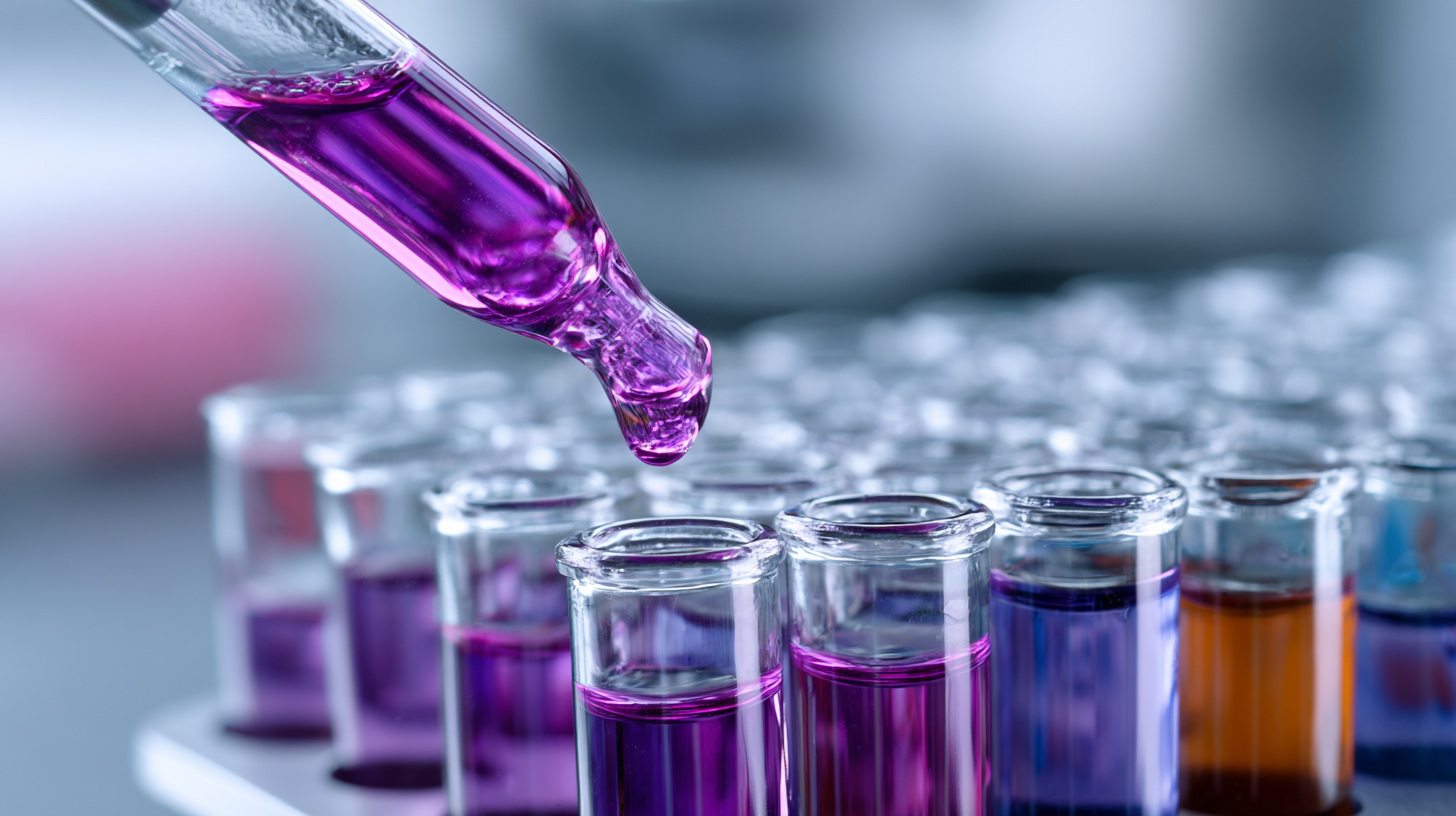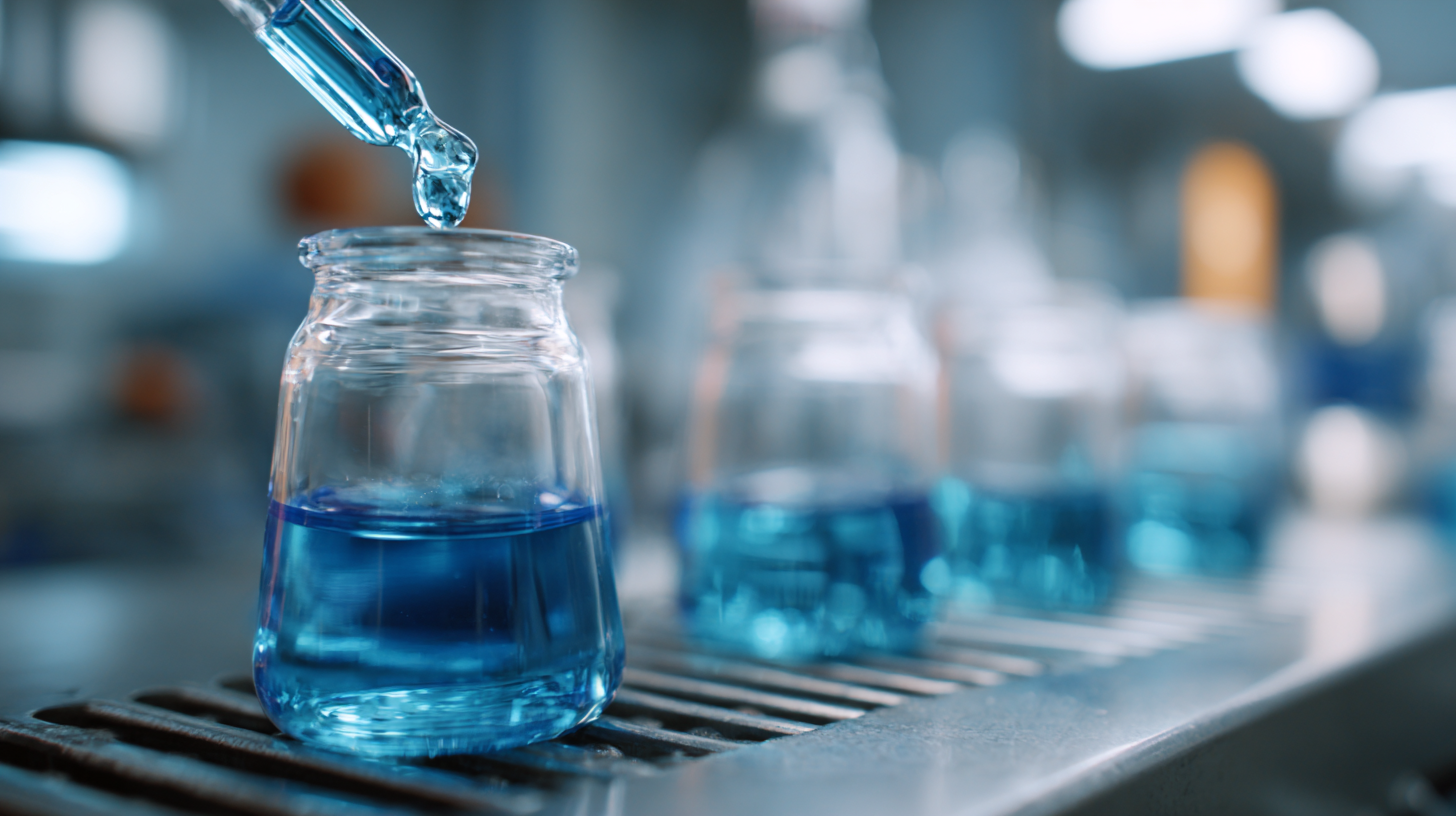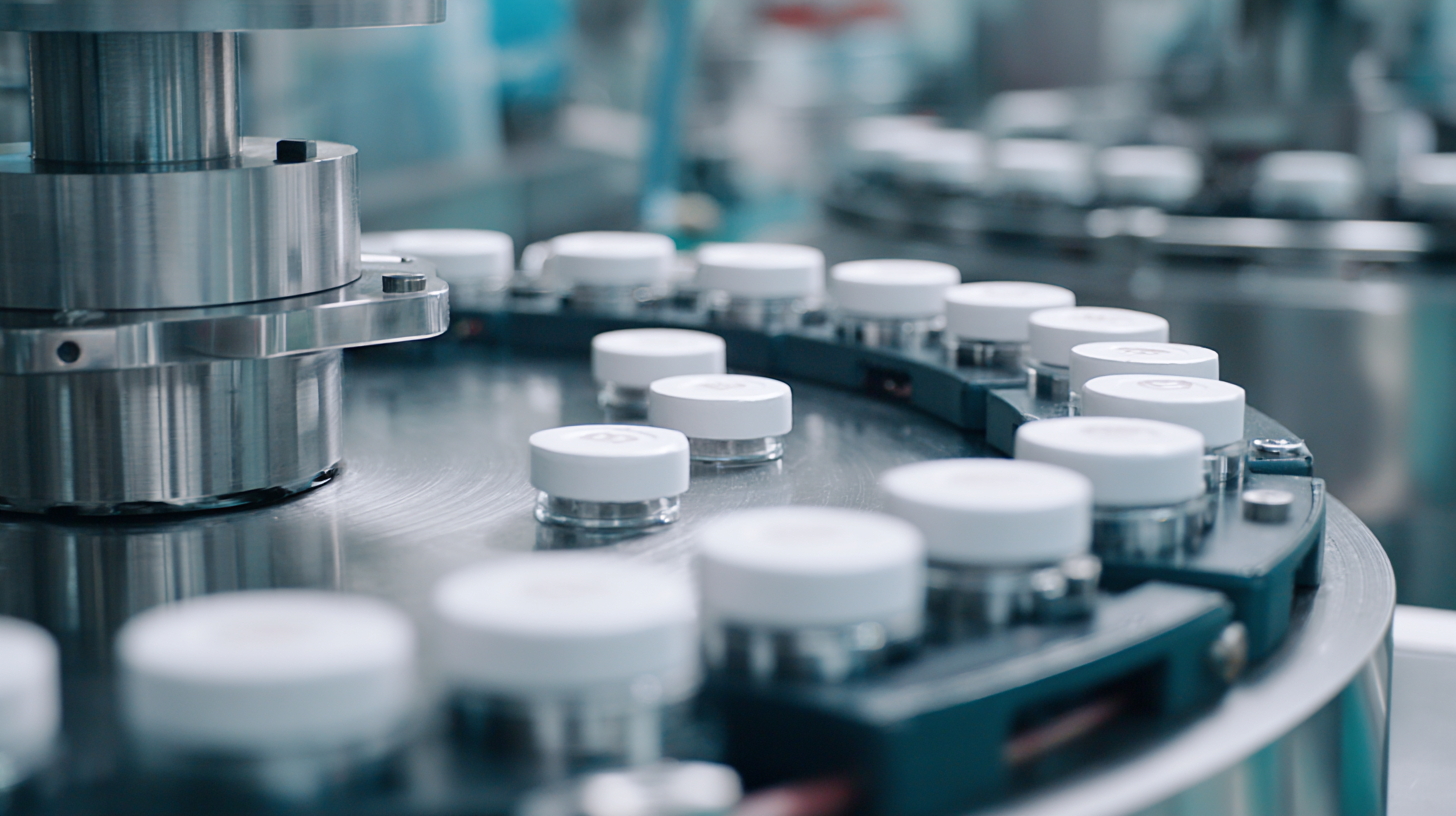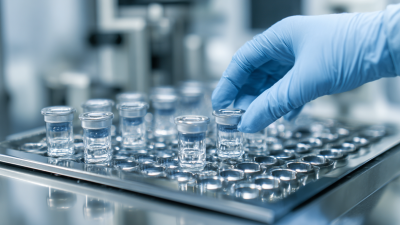The pharmaceutical industry is undergoing a transformative phase, driven by innovative testing methodologies that enhance drug development efficiency and ensure patient safety. The 138th Canton Fair in 2025 showcases groundbreaking advancements in pharmaceutical test innovations, as key players in the sector strive to meet the global demand for more effective therapeutics and diagnostics.

According to a recent report by Research and Markets, the global pharmaceutical testing market is projected to reach USD 52.3 billion by 2027, reflecting a compound annual growth rate (CAGR) of 9.2% from 2020 to 2027. At this pivotal event, companies are expected to unveil cutting-edge technologies in pharmaceutical test processes, which promise to streamline operations, reduce time-to-market, and enhance regulatory compliance.
As the fair becomes a central hub for collaboration and knowledge exchange, stakeholders across the pharmaceutical landscape will have the opportunity to explore how these innovations can reshape the future of drug testing and improve patient outcomes worldwide.
The 138th Canton Fair in China in 2025 is set to showcase groundbreaking innovations in pharmaceutical testing methods. These advancements not only facilitate more efficient drug development but also ensure better patient safety and treatment efficacy.
 Innovative testing techniques, particularly those leveraging nanomaterials, are transforming how we evaluate the performance and reliability of pharmaceutical products. By employing nanotechnology, researchers can enhance the properties of medical devices, leading to accelerated repair and regeneration processes in patients.
Innovative testing techniques, particularly those leveraging nanomaterials, are transforming how we evaluate the performance and reliability of pharmaceutical products. By employing nanotechnology, researchers can enhance the properties of medical devices, leading to accelerated repair and regeneration processes in patients.
Tips: When considering the integration of innovative testing methods, stakeholders should prioritize regulatory science to navigate compliance and safety requirements effectively. Understanding the interplay between innovation and regulation is vital for fostering advancements that align with industry standards.
The introduction of these cutting-edge testing methodologies at the Canton Fair signifies a major step forward for the pharmaceutical industry. By utilizing advanced nanomaterials, companies can achieve unprecedented levels of precision and responsiveness in their testing protocols, ultimately translating to safer and more effective healthcare solutions. The fair will serve as a vital platform for collaboration and knowledge sharing among professionals, promoting further advancements in the field.
The pharmaceutical industry is undergoing significant transformations influenced by evolving market trends and consumer demands. According to a recent report by IQVIA, the global pharmaceutical market is projected to exceed $1.5 trillion by 2025, driven by an increasing aging population and a rise in chronic diseases. As stakeholders prioritize patient-centric solutions, innovative testing methods are emerging as a critical component of drug development and approval processes. The need for faster, more accurate testing is becoming paramount, prompting companies to invest in cutting-edge technologies that reduce time-to-market while ensuring safety and efficacy.
At the 138th Canton Fair in 2025, these innovations will be front and center, showcasing developments such as point-of-care testing and advanced data analytics. A report by Grand View Research highlights that the point-of-care testing market alone is projected to reach $50 billion by 2024, presenting a significant opportunity for manufacturers and developers. These innovations not only cater to the immediate demands for rapid diagnostics but also align with regulatory pressures for more efficient workflows.
As industry players respond to these trends, the emphasis will be on integrating digital health solutions and enhancing accessibility, ultimately shaping the future landscape of pharmaceutical testing and quality assurance.
The 138th Canton Fair in China is set to showcase significant innovations in pharmaceutical testing, particularly in the context of evolving regulatory frameworks. As pharmaceutical companies navigate increasingly stringent regulations, the fair will highlight best practices and cutting-edge technologies that enhance testing processes. The emphasis on regulatory changes reflects a broader trend in the industry, necessitating adaptations to ensure compliance while maintaining high standards of safety and efficacy.
Recent studies have underscored the importance of pre-event testing and quarantine measures in mitigating the risks of epidemic rebounds, such as COVID-19. As the global landscape shifts, pharmaceutical testing practices must evolve in tandem to address these challenges. The Canton Fair presents a vital platform for stakeholders to share insights on how regulatory changes influence testing methodologies, thereby fostering a collaborative environment aimed at enhancing public health while driving innovation in the pharmaceutical sector.
At the 138th Canton Fair in China 2025, significant innovations in pharmaceutical testing were on display, emphasizing breakthrough technologies in drug testing and quality assurance. With the global pharmaceutical testing market expected to reach $67.4 billion by 2025, the fair serves as a crucial platform for industry leaders to showcase advancements that enhance the efficacy and safety of drug development processes. Cutting-edge technologies such as artificial intelligence and advanced bioanalytical methods were featured, promising to streamline testing protocols and reduce time-to-market for new drugs.
Tips: When navigating pharmaceutical innovations, it’s essential to stay updated with industry trends and embrace emerging technologies. Adopt AI-driven solutions to improve accuracy and efficiency in testing procedures. Furthermore, keeping abreast of regulatory changes can help pharmaceutical companies adapt to evolving quality standards effectively.
The introduction of continuous manufacturing techniques also marks a paradigm shift in the industry, promoting not only efficiency but also scalability in drug production. According to a recent report by Grand View Research, continuous manufacturing is predicted to grow by 15.9% from 2023 to 2030. By prioritizing quality assurance and adopting innovative testing solutions, companies can ensure compliance while enhancing patient outcomes, thereby solidifying their position in a competitive market landscape.
| Innovation Type | Description | Application Area | Benefits | Market Impact |
|---|---|---|---|---|
| Rapid Testing Kits | Portable kits for quick analysis of drug compositions. | Point-of-care testing. | Reduces time to results by 50%. | Increased accessibility for remote areas. |
| AI-driven Quality Assurance | AI algorithms for monitoring and ensuring quality during manufacturing. | Manufacturing process optimization. | Enhances reliability and reduces error rates. | Improves public trust in drug safety. |
| Blockchain for Traceability | Blockchain technology to track drug production and distribution. | Supply chain management. | Increases transparency and reduces fraud. | Enhances compliance with regulations. |
| Automated Analytical Systems | Fully automated systems for drug testing. | Laboratory testing procedures. | Increases throughput and efficiency. | Reduces operational costs. |
| On-site Genetic Testing | Portable devices for quick genetic diagnostics related to drug response. | Patient-specific medication plans. | Customizes treatments to individual needs. | Improves patient outcomes significantly. |
At the 138th Canton Fair in 2025, the pharmaceutical industry is poised for transformative innovations in testing methodologies. As companies increasingly pursue efficiency and accuracy in drug development, advancements in technologies such as artificial intelligence and real-time data analytics are emerging as game changers. According to the recent report from the Global Pharmaceutical Testing Market Assessment, the sector is expected to grow at a compound annual growth rate (CAGR) of 8.5% over the next five years, driven by innovations that streamline processes and enhance regulatory compliance.
Tip: For companies looking to stay ahead, investing in integrated testing solutions can significantly reduce time to market. By leveraging automation and sophisticated data analysis, organizations can not only improve accuracy but also optimize the resource allocation for better project management.

Post-Canton Fair, the focus is expected to shift towards personalized medicine and more comprehensive testing frameworks. Reports indicate a growing trend towards personalized therapeutic testing methods, which enable more precise patient-targeted treatments. This shift will likely foster collaborations between tech start-ups and traditional pharmaceutical firms, fostering a more innovative landscape for 2026 and beyond.
Tip: Embracing partnerships with technology firms can lead to unprecedented improvements in testing capabilities, allowing pharmaceutical companies to tailor their offerings better to meet market demands.





